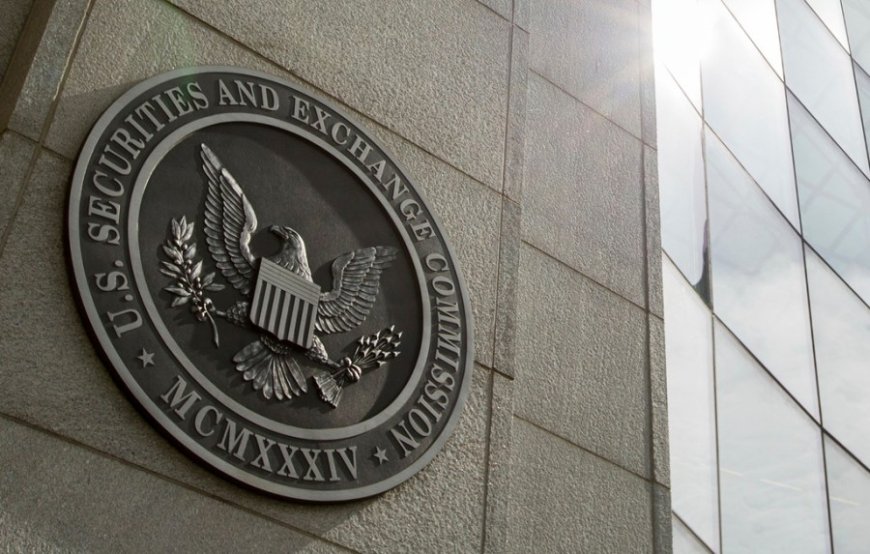The harms caused by the Biden administration’s regulatory overreach
The Biden administration is using "regulation by enforcement" and "regulation by letter" to bypass the law and regulate as much as possible.

Lost in the current political discussion about such critical national issues as whether people are eating pets is a debate about one of the most fundamental differences between Kamala Harris and Donald Trump — and indeed, between Democrats and Republicans more broadly.
That difference regards regulation. Nowhere could the contrasts between the two parties be more stark, at least short of abortion and taxes.
That the Democrats are willing not only to 1) regulate as much as they possibly can as quickly as they can, but 2) do so without regard to the law, has never been as clear as in the runup to the 2024 election.
Faced with essentially a 50-50 proposition of staying in power, or living with Trump 2.0 deregulation, the Biden executive branch is pulling out all the stops, often pushing the envelope on what is legal, in some cases past the breaking point.
For example, a few months back, a federal appeals court threw out a rule promulgated by the Securities and Exchange Commission regarding fees and certain other practices employed by private funds. The reason: The unanimous court said that the SEC doesn’t have the legal authority to make those rules.
The SEC did not appeal the decision. Instead, it started to act as if the rules still exist anyway, and has started bringing enforcement actions against some private funds.
You read that right: The courts said the SEC didn’t have the legal authority to do something, but it is acting as if it does anyway.
This isn’t a rare occurrence. In the parlance of Washington, it’s called “regulation by enforcement.” And it happens when a regulator either tries and fails (or doesn’t even try) to create a rule, but starts enforcing the rule anyway.
It isn’t the only extra-legal tool Democratic administrations love to use. A more sinister example is “regulation by letter.” It works like this: A regulator sends a letter (or makes a post on its official website) that essentially says, “We want you to do better…We aren’t going to tell you exactly what that means, but you had best get on it. If you don’t, we will start taking a much closer look at you. You wouldn’t want that, would you?”
Put another way, it’s the government equivalent of a mafia protection racket. “Nice place you’ve got here…it would be a shame if it should burn down.”
The Federal Deposit Insurance Corporation just did this a few months back on rules regarding passive ownership of some banks by large asset managers. It started with the FDIC approving a Notice of Proposed Rulemaking, which, on its face, seems unnewsworthy. However, the FDIC then sent letters out to asset managers requiring them to abide by many terms of the proposed rule almost immediately, even though it is only a proposal.
In other words, never mind that the rule doesn’t formally exist yet, we are going to act as though it does. And woe to those who don’t obey our non-rule.
Of course this all violates both the letter and the spirit of the Administrative Procedures Act, which lays out how executive agencies are supposed to behave when promulgating regulations. Its rules include small inconveniences for regulators, such as the right for members of the public to comment on the proposals.
But following the law can be difficult and slow. And after all, when it comes to so many things these days, it seems, for too many on the left, the ends justify the means.
This is not to say that victims of this government overreach don’t have a remedy. They can (and occasionally do) sue the government. But many don’t have the money to do that. Others do, but they run the risk — even if they are successful in litigation — of incurring even more wrath from the regulators the next time.
Just ask PayPal, which in 2019 challenged proposed rules on prepaid cards by the Consumer Financial Protection Bureau. Although PayPal ultimately prevailed, the government responded to the lawsuit with two fresh investigations into its other practices.
As the recent SEC action on private funds shows, even beating the government in court might not be enough, especially if a progressive Uncle Sam is completely happy to ignore court decisions.
Regulation touches all of us in ways we will never see. And although you might not have a dog in the fight in things like private funds or large passive investments in banks, those regulations affect the market, and the market affects you.
Your bank fees may go up; your “free checking” account might get a lot more expensive (or disappear entirely); your mortgage costs could go up; your small business may not be able to get a loan.
The Administrative Procedures Act is there to protect the people being regulated. But the law also protects you and me. And it would be nice if the Biden administration would start following the law.
Mick Mulvaney, a former congressman from South Carolina, is a contributor to NewsNation. He served as director of the Office of Management and Budget, acting director of the Consumer Financial Protection Bureau and White House chief of staff under President Donald Trump.
What's Your Reaction?





















































